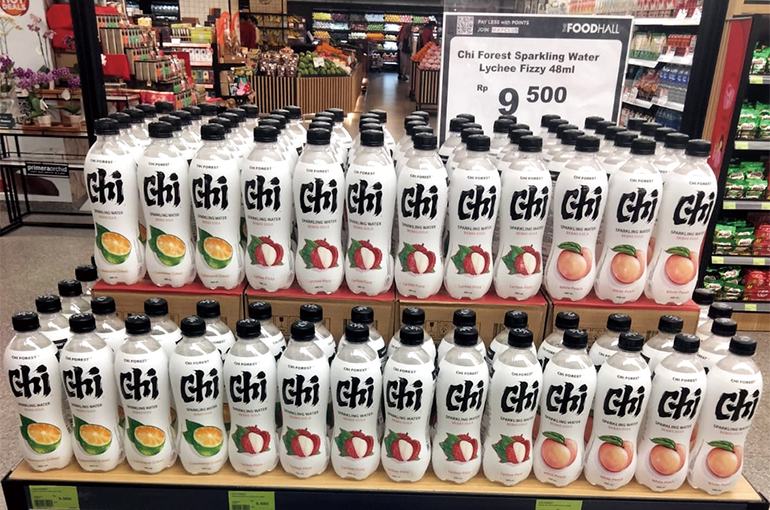 Chinese F&B Businesses Are Still Groping Way Forward in Overseas Markets
Chinese F&B Businesses Are Still Groping Way Forward in Overseas Markets(Yicai) Jan. 25 -- Despite hastening their overseas expansion, Chinese food and beverage companies lack experience in building supply chains, brands, and production capacity abroad. They are still in the exploration stage.
The massive offshore market is just as tempting as the home market for Chinese F&B businesses, Mei Hongdao, general director of the Americas division of Want Want China Holdings’ overseas development division, told Yicai. Units of the Shanghai-based rice cracker and flavored drinks maker have become operational in Vietnam, Thailand, Indonesia, Germany, and North America.
Dairy giants China Mengniu Dairy and Inner Mongolia Yili Industrial Group have also carried out their initial plans in Southeast Asia by building factories or through mergers and acquisitions. And Genki Forest Technology Group has entered more than 40 countries and regions and will soon complete its layout at US big-box retailer Costco Wholesale, the non-alcoholic drinks maker said this month.
Southeast Asia is the most important overseas market for Chinese F&B companies, with a population of about 670 million and increasing consumer purchasing power.
But firms need to build up experience in expanding abroad, stay cautious, and avoid being too hasty, according to Zhu Danpeng, deputy director of the Guangdong Food Safety Promotion Association.
The first barrier is compliance, as food and drink regulations can vary from country to country, so companies need to adjust product formulas based on local regulations, Want Want's Mei noted. It takes time and money to keep the taste of products unchanged, he added.
At the same time, Chinese fast-moving consumer goods brands still need to come up with more localized and competitive products for overseas markets, Mei said. They cannot simply bring goods proven in the home market to other countries and make changes in the process, as this costs a lot of money and time.
Building plants overseas is also a new challenge for Chinese companies. Local production can bring them closer to the target market, but construction requires a lot of investment, and companies will have additional costs related to labor, raw materials, energy, and operations.
Want Want is cautious about building plants abroad, according to Mei, noting that the company needs at least five years of planning to consider the long-term development of each local market, product costs, profit, and other factors. Genki Forest is still considering whether to build overseas plants, it said.
Editor: Martin Kadiev